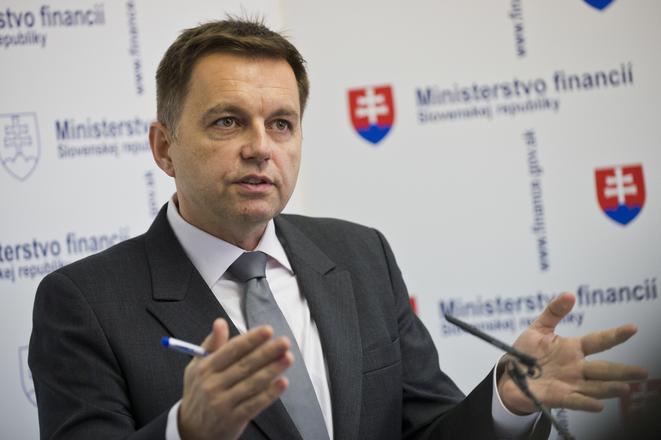The long-term sustainability of Slovakia’s public finances did not change last year, with the indicator reaching 1.4 percent of GDP, the same figure as was reported in 2014, the Budgetary Responsibility Council (RRZ) stated in its latest Report on Long-term Public Finances Sustainability.
“The starting position had a negative contribution towards long-term sustainability due to a year-on-year worsening of general government performance,” RRZ chair Ivan Šramko said, as quoted by the TASR newswire. “According to Eurostat figures, Slovakia ended last year with a deficit nearly below 3 percent of GDP.”
RRZ stated that no changes in the areas of income and spending sensitive to demographic changes that could have a significant influence on long-term sustainability were adopted last year.
“There were no significant changes in long-term projections of income and spending sensitive to demographic changes apart from the introduction of minimum pensions,” Šramko added, as quoted by TASR.
The Finance Ministry responded to the report by saying that the indicator of long-term sustainability of public finances in Slovakia is not in the sphere of high risk any longer. Significant improvement in recent years has been mainly due to reforms, as well as consolidation of the public finances, noted the Finance Ministry, TASR wrote.
Meanwhile, the RRZ claimed that the current prospects for economic development create scope for reducing the budget deficit to a minimum of 1.1 percent of GDP by 2019 without any government intervention.
“The economy has improved, which could reduce the deficit in the medium term even without real savings on the expenditures side,” explained RRZ member Ľudovít Ódor, as quoted by TASR. “If we maintain expenditures according to inflation indexing, the deficit will automatically decline.”
The government should make use of better economic conditions, thinks RRZ. If the government fails to use this scope and keeps expenditures in relation to GDP at a constant level, the indicator will grow to 2.4 percent of GDP.
The RRZ positively evaluates the fact that the government has committed itself to achieving a balanced budget. Achieving a balanced or even surplus budget by 2019 would help public finances to approach a state of long-term sustainability. The sustainability indicator may even get into negative territory of almost 0.5 percent of GDP.
“The ability to reflect performance in significant debt reduction is an important precondition for developments like this,” added Šramko, as quoted by TASR.
Among the biggest risks for the budget, to which RRZ pointed, is health care. Spending on this sector rises quickly, while the government does not adopt necessary measures, the public-service broadcaster RTVS reported.
The Finance Ministry promised to adopt reforms, including the massive revision of spending in health care, transport and informatisation, according to RTVS.



 Finance Minister Peter Kažimír (source: TASR)
Finance Minister Peter Kažimír (source: TASR)